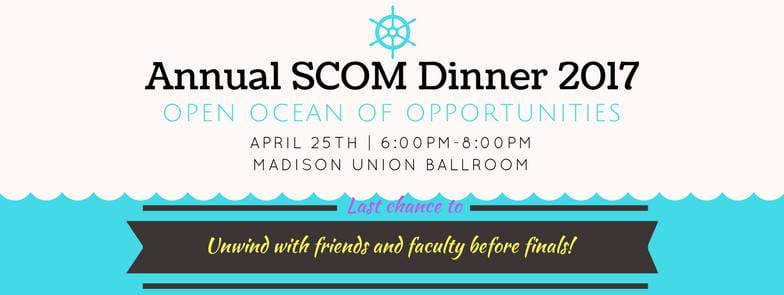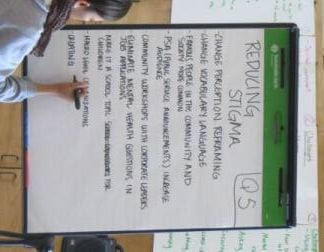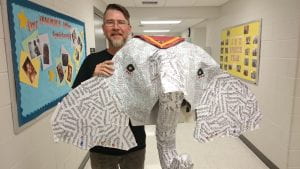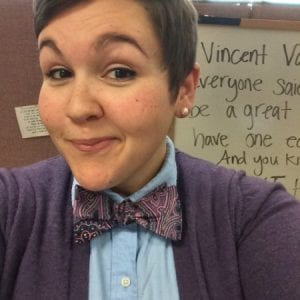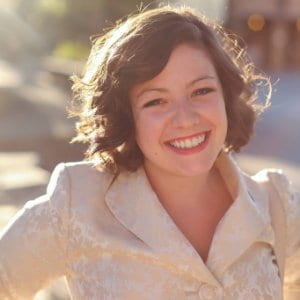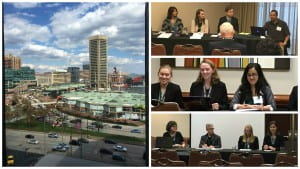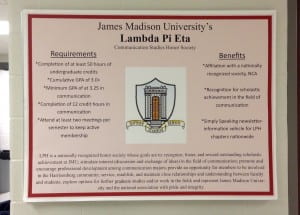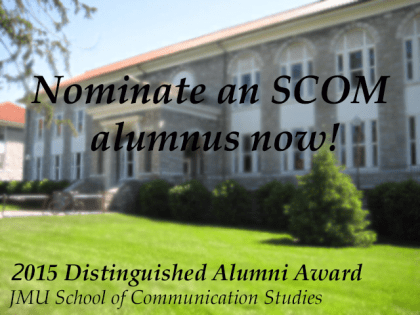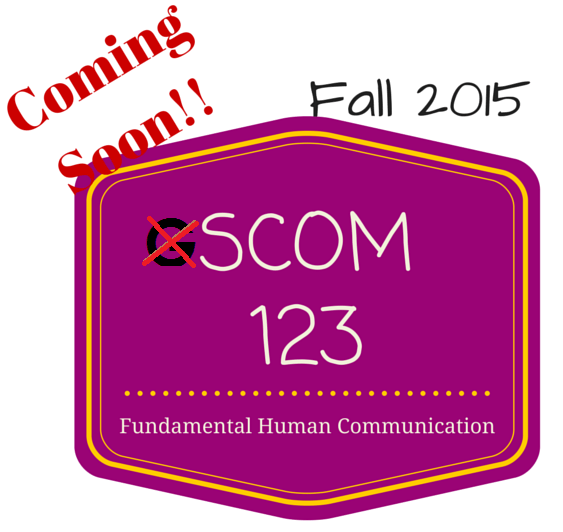By Melissa Swan (’18)
A party by students for students and faculty?
Sounds like fun—and, yes, it will be!
Each and every April, JMU’s School of Communication Studies hosts an annual dinner where SCOM students, faculty, family, and friends get together to gaze back and ahead. The event includes great food, numerous awards, plenty of celebration and, of course, a dash of education.

Eric Fife, Director of the School of Communications, agrees saying, “it’s a wonderful event, and a great way to celebrate a successful year.”
That’s certainly the case this spring. Planning began in January, and has been a time of high anticipation for the student planners, seniors Karan Deengar (’17) and Ian Francisco (’17).
Deengar, a highly organized and detail-oriented individual, chose to plan this event because he wanted to learn.
“This dinner is one of the biggest events within SCOM and I wanted to be a part of the process to learn all about what makes it such a special event for all those involved,” Deengar says.
This year’s theme, “Open Oceans of Opportunity” reflects the many paths to success within communication studies.
Francisco, the creative brains behind the dinner, chose to take part in the event because he wanted this year’s event to be the best one yet.
“My last year in SCOM, or at JMU in general wouldn’t be enough if I didn’t become involved in a big way” the senior says.

“This was my way to give back to my major and wrap things up as a student here!”
Both students found the planning process enlightening and educational as they learned the importance of having a good partner.
“The success of any two business partners or colleagues is directly reliant on the synergy between the two people,” said Francisco, “I learned this right away as Karan kept catching things I was missing, and I was doing the same to him.”
This year, the event falls on Tuesday, April 25 and will be held in the Madison Union Ballroom. It’s a special time to unwind, listen to live entertainment and enjoy a lovely meal with faculty and students alike.
Most importantly, the evening will feature various awards. For students, recognition will be given to individuals within their chosen concentration and student organizations in SCOM. The best lecturer award, the best professor award and the distinguished alumni award will be presented as well.
Fife noted his excitement surrounding the event saying “Every aspect of the community is represented, which I think is fantastic. If I could find a way to do so, I’d make it an even larger event.”
Both Francisco and Deengar agree they hope the night will be a time for everyone to “take it all in one last night before finals and entering the real world, I know it will be for me” said Deengar.
Melissa Swan, an SCOM major following plans for the event, is also excited. “It’s sure to be a great time,” she says. “After all, who knows how to throw a party better than JMU students?”
